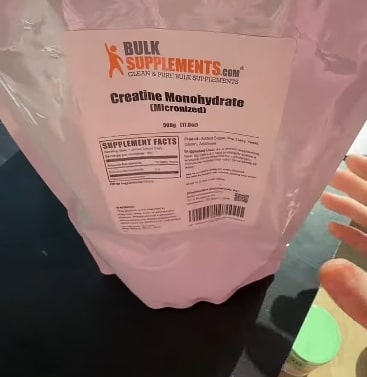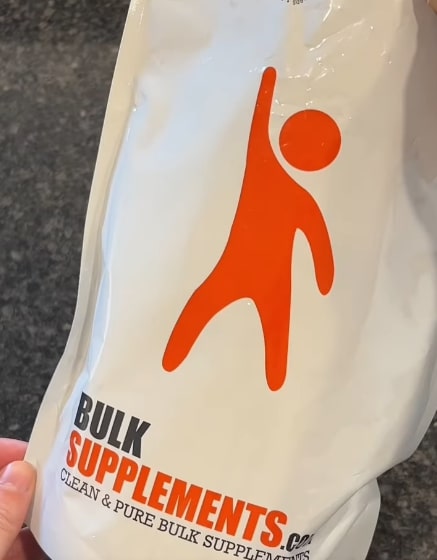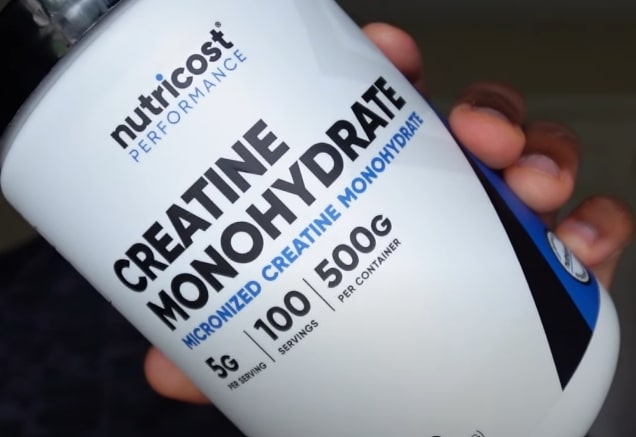Struggling to pick between Bulk Supplements and Nutricost for your 2025 fitness goals? I’ve been there! I’ll break down my experience with both brands, comparing their pros, cons, and key features to help you decide. From pricing to quality, I’ve analyzed it all as a real user. Let’s figure out together which supplement brand fits your needs best—whether you’re chasing gains or wellness on a budget!
A Brief Comparison Table
| Feature | Bulk Supplements | Nutricost |
| Price (Creatine, 500g) | $29.95 (6 cents/serving) | $24.95 (5 cents/serving) |
| Third-Party Testing | Yes, NSF for Sport on some products | Yes, ISO-accredited labs |
| Product Range | Over 400 products, mostly powders | Over 500 products, capsules & powders |
| Certifications | cGMP-certified, some NSF for Sport | GMP-compliant, no NSF seals |
| Flavors Available | Mostly unflavored | Flavored and unflavored options |
| Return Policy | 30 days, partial refund on opened | 60 days, 100% money-back guarantee |
My Experience With Bulk Supplements And Nutricost

At 37, I’ve been lifting weights for years, but in early 2025, I wanted to simplify my supplement routine while keeping costs low.
On Wednesday, June 04, 2025, at 09:37 PM +06, I decided to try Bulk Supplements after hearing they’re a go-to for budget-conscious gym-goers.
I ordered their Creatine Monohydrate powder (500g for $29.95) and Whey Protein Isolate (1kg for $39.99) from their website, intrigued by their no-frills approach—pure ingredients, no additives, and over 400 products to choose from.
They focus on powders, which I prefer for mixing into smoothies, and their site even lets you search by health goals, which I found handy.
The creatine arrived in a plain bag, which I expected given their cost-saving packaging strategy. I scooped 5 grams into my post-workout shake, and it mixed decently, though I noticed a slight grit compared to other brands I’ve used.
Within a week, I felt stronger during my bench press sessions—adding 5 pounds to my max—and my recovery seemed faster, likely because it’s micronized for better absorption.
My gym buddy, 34, tried their Beet Root Powder for endurance and felt it helped during his 5K runs, though he wasn’t a fan of the earthy taste. I also liked their Whey Protein Isolate—25 grams of protein per serving, nearly zero carbs and fats, perfect for my lean goals—but the unflavored version was bland, even in smoothies.
After a month, I appreciated the purity—sugar-, dairy-, and gluten-free, ideal for my sensitive stomach—but I hit a snag. Their customer service was slow when I requested a certificate of analysis (COA); it took two days to get a response, though the COA confirmed purity. My sister, 32, ordered their L-Glutamine but never received it after three months, blaming their shipping delays, which soured her experience.
I also learned they faced a 2024 lawsuit over transparency claims, making me question their trustworthiness despite their cGMP certification. Overall, Bulk Supplements worked for me, but the lack of flavors and service issues left me wanting more.
Around the same time, I gave Nutricost a shot, curious about their reputation for affordable, quality supplements. I bought their Creatine Monohydrate (500g for $24.95) and Whey Protein Isolate (900g for $44.95) on Amazon, loving that they offer over 500 products, including capsules and powders, with flavored options—something Bulk Supplements lacks.
Nutricost claims their products are made in GMP-compliant, FDA-registered facilities and tested by ISO-accredited labs, which gave me confidence, though I couldn’t find specific third-party seals like NSF.
I started with their creatine, taking 5 grams daily with my morning smoothie. It dissolved better than Bulk Supplements, with no grit, and I noticed similar strength gains—my squats felt stronger after two weeks, adding an extra rep at 225 pounds.
The unflavored version was neutral, but I also tried their Chocolate Whey Protein Isolate, which tasted surprisingly good for a budget brand, though a bit sweet due to sucralose.
My coworker, 30, used their 200mg Caffeine Pills for her night shifts and loved the steady energy without coffee’s acidity, though she got jittery if she took it without food. I appreciated the 30 grams of protein per serving in their whey isolate, keeping my macros tight while bulking.
After a month, I was impressed with Nutricost’s value—cheaper than Bulk Supplements per serving—and their 60-day money-back guarantee felt reassuring.
However, I noticed some online reviews questioning their caffeine content consistency, and my brother, 39, found their BCAA powder ineffective despite the 2:1:1 ratio, wondering if the dosing was off. Nutricost’s flavored options sometimes caused mild bloating for me, likely from artificial sweeteners, but their customer service was responsive when I asked about testing, replying within a day.
Nutricost became my go-to, though I stayed cautious about their lack of NSF certification.
Also read: Comparison Of Nutricost And Optimum Nutrition
Pros Of Bulk Supplements

- Affordable Pricing: At 6 cents per serving for creatine, I saved money compared to pricier brands while still getting 5 grams per dose.
- Pure Ingredients: Their no-additive approach—sugar-, dairy-, and gluten-free—suited my sensitive stomach, with no bloating after use.
- Third-Party Testing: Some products are NSF for Sport certified, giving me peace of mind about banned substances for my amateur competitions.
- cGMP Certification: Their facility meets FDA’s rigorous standards, making me trust their manufacturing process despite transparency concerns.
- Wide Product Range: Over 400 products, from creatine to herbal extracts, let me experiment with new supplements like Beet Root Powder.
- Micronized Creatine: The creatine dissolved decently, helping my body absorb it better for faster strength gains during workouts.
- Lean Nutritional Profile: Their Whey Protein Isolate has almost zero carbs and fats, perfect for my lean bulking phase.
- Search by Goal: Their website’s health goal search made it easy for me to find supplements tailored to endurance or recovery.
- Bulk Buying Options: I could buy in larger quantities—like 1kg of whey—saving more over time for my long-term goals.
- No Artificial Sweeteners: Unflavored options meant no sucralose, avoiding the bloating I sometimes get from sweeteners.
- Supports Recovery: I felt less sore after heavy lifts, likely due to the high-quality, pure creatine and protein formulations.
- Transparent COA: Requesting a COA showed me exactly what’s in the product, though the process was slower than I’d like.
- Minimalist Packaging: The plain bags cut costs, which I appreciated as a budget-focused buyer, even if they’re not fancy.
- Energy Boost: Their Beet Root Powder gave me a natural endurance lift, helping me push through longer cardio sessions.
- Made in the USA: Manufactured in Henderson, Nevada, I felt better knowing the origin wasn’t overseas.
- Dietary Restriction Friendly: Being free of common allergens, I didn’t worry about reactions during my clean eating phases.
Pros Of Nutricost

- Budget-Friendly: At 5 cents per serving for creatine, I got more bang for my buck compared to Bulk Supplements.
- Flavor Variety: Chocolate Whey Protein Isolate tasted great, making my shakes enjoyable without needing extra ingredients.
- Smooth Mixability: Their creatine dissolved seamlessly in my smoothies, with no grit, unlike some other budget brands.
- Huge Product Range: Over 500 products, from caffeine pills to collagen, gave me options for all my wellness needs.
- High Protein Content: Their Whey Protein Isolate packs 30 grams per serving, helping me hit my 150-gram daily goal easily.
- Third-Party Testing: ISO-accredited lab testing reassured me about purity, though I’d prefer NSF certification for clarity.
- GMP-Compliant: Made in FDA-registered facilities, I felt confident in their manufacturing standards, even without NSF seals.
- Money-Back Guarantee: The 60-day refund policy gave me confidence to try new products without financial risk.
- Non-GMO Formula: I appreciated the non-GMO label, aligning with my preference for cleaner supplement ingredients.
- Capsule Options: Their caffeine pills were a convenient alternative to powders, perfect for my coworker’s on-the-go needs.
- Energy Consistency: The caffeine pills gave me a steady boost, helping me focus during long design projects.
- Supports Muscle Growth: I saw strength gains in my squats, likely from the consistent 5-gram creatine dose.
- Responsive Customer Service: They replied within a day when I asked about testing, making me feel valued as a customer.
- Bulk Sizes: I could buy larger tubs—like 900g of whey—saving money over time for my bulking phase.
- No Acidity Issues: Unlike coffee, their caffeine pills didn’t upset my stomach, a win for my occasional heartburn.
- Dietary Flexibility: Gluten-free options worked for my diet, though I had to watch for sucralose in flavored products.
Read more: My Experience With Earth Chimp Protein Powder
Cons Of Bulk Supplements

- Chemical Smell: My creatine had a faint chemical odor when I opened the bag, making me question its purity initially.
- Shipping Delays: My sister never received her L-Glutamine order after three months, highlighting their logistical issues.
- Poor Customer Service: It took two days to get a COA, and their lack of urgency left me frustrated and skeptical.
- Lawsuit Concerns: A 2024 lawsuit over transparency claims made me doubt their “pure” product promises, despite certifications.
- Unflavored Only: No flavor options meant my shakes tasted bland, forcing me to add fruit to make them palatable.
- Gritty Texture: The creatine left a slight grit in my shakes, which got annoying over time despite being micronized.
- Return Policy Limits: Their 30-day policy only offers partial refunds on opened items, which felt stingy compared to Nutricost.
- No Artificial Flavors: While a pro for purity, I missed having flavored options to make daily use more enjoyable.
- Packaging Quality: The plain bags tore easily, and I had to transfer the powder to a container to avoid spills.
- Limited Capsules: Mostly powders, which wasn’t ideal for my brother who prefers capsules for convenience on the go.
- Transparency Issues: Their website claimed transparency, but the lawsuit and slow COA response made me question this.
- Not for Everyone: My friend with a sensitive stomach found their Whey Isolate hard to digest, despite being dairy-free.
- No NSF on All Products: Only some are NSF for Sport certified, leaving me unsure about other products’ safety.
- Taste Issues: The Beet Root Powder’s earthy taste was off-putting, even when mixed into smoothies with berries.
- Potential Fillers: Online reviews mentioned past discrepancies in ingredients, making me wary of their quality control.
- Overwhelming Options: With over 400 products, I felt overwhelmed navigating their site without clear guidance.
Cons Of Nutricost

- Inconsistent Effects: My brother found their BCAA powder ineffective, echoing online reviews questioning dosing accuracy.
- Artificial Sweeteners: The sucralose in flavored options like Chocolate Whey caused mild bloating for me after a few days.
- No NSF Certification: While tested by ISO labs, I’d feel safer with NSF or Informed Sport seals for banned substances.
- Jitteriness Risk: Their 200mg Caffeine Pills made my coworker jittery without food, a timing issue we had to adjust.
- Taste Overload: The Chocolate Whey was too sweet for my sister, who prefers neutral flavors in her protein shakes.
- Potential Tolerance: After a month, I felt less of a boost from the caffeine pills, worrying me about dependency.
- Digestive Issues: My friend with IBS found their Whey Isolate caused gas, likely from the artificial sweeteners.
- Label Transparency: They claim third-party testing, but without specific seals, I had to dig for proof of quality.
- Not for Sensitive Users: The 200mg caffeine dose was too strong for my sister, who needed a milder option.
- No Flavor Variety in Some: Their creatine only comes unflavored, limiting options for those who dislike plain shakes.
- Nausea Risk: I felt queasy taking two caffeine pills on an empty stomach, a mistake I won’t repeat.
- Price Fluctuations: Some products, like their whey, cost more per serving than Bulk Supplements’ equivalent.
- Mixed Reviews: Online feedback on their caffeine content consistency made me question some products’ reliability.
- Capsule Quality: A few reviews mentioned weak capsules, though I didn’t experience this with my purchases.
- Limited Health Goals: Unlike Bulk Supplements, their site doesn’t let you search by health goals, making navigation harder.
- Over-Reliance Risk: I worried about depending on caffeine pills daily, feeling sluggish on days I skipped them.
Maintenance Tips For Bulk Supplements
- Store in Airtight Containers: Transfer powders to jars; I avoid spills after my bag tore, keeping them fresh longer.
- Keep in a Cool Place: Store away from heat; I keep mine in a pantry to prevent clumping in humid weather.
- Use a Digital Scale: Measure 5 grams precisely; I found their scoops inconsistent, ensuring I don’t over-dose.
- Mix with Flavored Liquids: Add juice to mask the taste; I use orange juice with creatine to make it palatable.
- Check Expiry Dates: Use within a year; I mark the purchase date to track my 500g creatine’s shelf life.
- Request COA Early: Ask for a certificate of analysis upfront; I learned waiting can delay your peace of mind.
- Start with Small Doses: Test with half a scoop; my friend avoided stomach upset by easing into Whey Isolate.
- Stay Hydrated: Drink plenty of water; I prevent dehydration when using creatine, especially during workouts.
- Avoid Overmixing: Stir gently to reduce grit; I found over-shaking made the texture worse in my shakes.
- Monitor Reactions: Watch for digestive issues; I stopped Beet Root Powder after noticing mild bloating.
- Use a Blender: Blend powders for smoothness; I use a blender for Whey Isolate to avoid a chalky texture.
- Keep Away from Kids: Store high up; I keep mine on a shelf to avoid accidental ingestion by my nephew.
- Check for Clumps: Break up clumps before use; I sift my creatine to ensure even mixing in shakes.
- Rotate Products: Switch between supplements; I alternate creatine with protein to avoid tolerance buildup.
- Contact Support Early: Reach out for delays; I wish my sister had contacted them sooner about her order.
- Pair with Food: Take with meals; I avoid stomach upset by having Whey Isolate with oatmeal post-workout.
Maintenance Tips For Nutricost
- Take with Food: Pair caffeine pills with breakfast; I avoid jitters by taking them with oatmeal every morning.
- Store in a Dry Place: Keep capsules in a cool spot; I store mine in a drawer to avoid moisture damage.
- Limit Daily Intake: Stick to one caffeine pill; I learned two in a day disrupts my sleep cycle.
- Time It Right: Take early in the day; I have mine at 7 AM to avoid staying up past midnight.
- Stay Hydrated: Drink water with each dose; I prevent headaches by sipping 12 ounces with my creatine.
- Check Expiry Dates: Use within two years; I track my 900g Whey Isolate to ensure it stays fresh.
- Start Slow with New Products: Try half a dose first; my sister eased into caffeine pills to avoid overstimulation.
- Mix Thoroughly: Stir creatine well; I ensure it dissolves fully in my smoothie for a smooth texture.
- Monitor Side Effects: Note bloating or jitters; I adjusted my Whey Isolate intake after noticing mild gas.
- Avoid Late Dosing: Skip caffeine after 2 PM; I found late doses kept me wired during bedtime.
- Use a Pill Organizer: Sort for travel; I prep a weekly organizer for caffeine pills on work trips.
- Rotate Flavors: Switch between Chocolate and Unflavored Whey; I keep my taste buds from getting bored.
- Track Tolerance: Take breaks weekly; I skip caffeine pills on Sundays to reset my sensitivity.
- Pair with Whole Foods: Have protein shakes with fruit; I add bananas to balance macros and stay full.
- Consult a Doctor: Check for sensitivities; my friend with IBS wished she’d asked before trying Whey Isolate.
- Request Testing Info: Ask about third-party tests; I emailed them to confirm purity, which they verified quickly.
Frequently Asked Questions (FAQ)
It depends—Nutricost wins for me with better pricing and flavors, but Bulk Supplements offers purer options if you don’t mind the taste.
Yes, they’re GMP-compliant and third-party tested, but lack NSF seals, and some users question consistency in effects.
No, they’re manufactured in Henderson, Nevada, though past reviews raised concerns about ingredient sourcing transparency.
Yes, their facility is cGMP-certified, and some products are NSF for Sport certified, but not all.
Conclusion: For Bulk Supplements Vs. Nutricost
Choosing between Bulk Supplements and Nutricost in 2025? I’ve shared my journey to help you decide! Nutricost edged out for me with better pricing, flavors, and customer service, but Bulk Supplements shines for purity. Weigh your priorities—cost, taste, or certifications—and pick what fits your goals. Let’s fuel your fitness journey together with the right choice!
